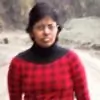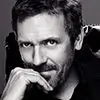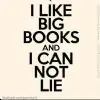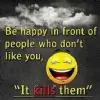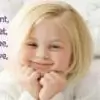So here I would like to hear from the members, at what age and under what circumstances did they come to understand caste-system? What was it that brought home to them very forcefully - about their caste and difference from others?
edited at 11:44 pm
If I make a short post, you can rest assured that there's more to come :)
After hearing so many accounts - I've come to understand something. All of us faced the evil at an age when our minds were mature enough to understand what discrimination is. Also most of us believed that discrimination on the basis of caste is wrong, but had been silent witness to the practice in our own homes. So there was this gap between understanding the evil of the system and the awareness of the practice.
Another thing the awareness of the practice invariably came from outsiders - neighbors, school, friends, colleagues and such like. And the heightened awareness made us re-evaluate our own domestic environment. Most of us felt ashamed of the environment. Implying thereby that what we believe is right and what we understand is the practice are two different things.
Then there was the account of Soni - whose father actually fought the system and made a place for himself. Most of us belong to the upper castes - the perpetrators of the crime so to say. Soni has to tell us the story from the other side of the lines. She faced it first-hand in the discrimination at her hometown. Her parents fought the system and must've gone through a lot to make place for themselves and their children in this society.
And this is what I wanted to understand through the stories shared by all. How the indoctrination works in the modern urban society. We all believe that "Aisa Nahi Hota" but it happens all around us everyday. We are asked at school to mention our caste. The census officials have a separate section to fill details about caste. Our surnames carry the caste identity with it. They narrate the entire story on their own. We still keep separate utensils at home for the servants. Somewhere we need to find a separate identifying paradigm than the existing one.
I believe the internet is a great equalizer. How many of us know each others religions or castes or even gender in some cases, till the information was willingly shared. In this forum we've learned over the past few weeks to assess each other purely on the basis of the thoughts and ideas expressed. And what better paradigm can be there for identifying a person? Wish we could replicate it in real life too.


